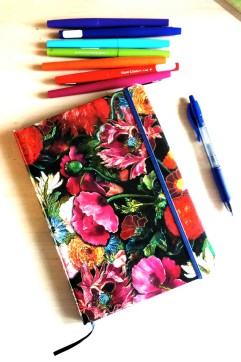I’m writing this week’s review a day early, as we are about to take off on the annual canter around the country to visit relatives, which we seem to do every Easter and Christmas. I’m usually feeling like screaming ‘Stop the world! I want to get off!’ at this point, but perhaps I’ve finally accepted that RESISTANCE IS FUTILE, and its got to be done.
In response to the impending rupture in proceedings, I decided I was going to make the most of my last remaining free days for a while to get a bit more out of my writing practice. I agreed with my writing coach, Heidi, that I would do it twice a week, Mondays and Thursdays, because they were the days that I had most time and energy – because of my ME/CFS, I have to plan my activities to preserve my energy, and energy intensive activities like going to weekly health appointments have to take precedence over everything. So I’ve been doing, or trying to do, two a week.
The thing is that when I do it, I find it so productive and enjoyable. So I thought, why not take it seriously? Why not try and do it every day? Or rather, why not have yet more fun? (It’s a no-brainer when you put it like that, isn’t it?)
I’ve managed four consecutive days so far. This is, I think, because I’m not putting pressure on myself. I’m doing it to see what comes out. And I’m discovering a lot. For instance, the vicar in my novel has a sentimental attachment to a mangy old stuffed parrot which is kept on the table by the door in the Rectory. The vicar’s wife, who I thought would be adversarial at most, and certainly peripheral, has turned into my heroine’s useful ally, and definitely cherishes a grief of her own. And I’ve realised that I am deliberately avoiding getting into the mind of the heroine’s employer…. Now why would that be?
It’s all an intriguing puzzle, and I want to know more. Like reading a detective story, and wanting to know the ending, I feel like this novel is hidden under my skin, entire, and all I have to do is uncover it. And then the exciting denouement will be clear.
In another effort to entice my Muse out to play, I dragged out the writing notebook I’d started months ago. It’s a nice notebook, lovely paper, but the cover is boring as hell, so it doesn’t seduce me into using it. So I recovered it with some wrapping paper I had. I think the transformation works quite well, don’t you?

Before…

…and after
So now I’m heading off into the wilds of No-easily-available-wifi-land, with my trusty notebook in hand, and a few half hours sketched into my schedule to do a bit of writing practice. Knowing Oxford, where I’m going, I shall snap a few pictures of sublime architecture and blossom-heavy trees along the way, so check out my Instagram account if such things amuse you.
Enjoy your Easter weekend, dear Reader, and may all your creating be fun,
EF






